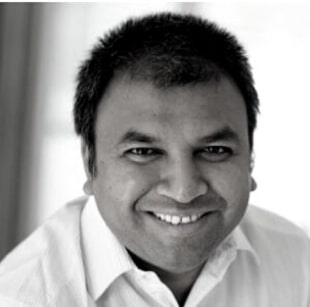
5 Steps to Make a New Year’s Resolution
In Western cultures, making New Year’s resolutions is a long-running tradition. But according to the University of Scranton, only 8% of those who make New Year’s resolutions actually keep them. Also, people who make new year’s resolutions are 10 times more likely to achieve their goals than the ones who don’t. Here’s a SMART way to identify the right resolution and become part of the small group of people that successfully achieve their resolution.

Most of the resolutions fail because of the following reasons:
- Resolutions made based on what society wants you to achieve
- It’s uncertain, indefinite, or unclear
- Not having a realistic plan to achieve your resolution
Your resolution should be SMART. Let’s understand more in detail:
-
Specific
Your resolution should be totally clear, focused, concise, and well defined. Avoid general terms and be as detailed as you can. “Making a concrete goal is really important rather than just vaguely saying ‘I want to lose weight.’ You want to have a goal: How much weight do you want to lose and at what time interval?”
-
Measurable
This may seem obvious if your goal is a fitness or weight loss-related one, but it’s also important if you’re trying to cut back on something, too. It is important that you have a way to measure your success. Check to see if your goal has time frames, dates, dollar amounts, number of credits, etc. It is important that your goal has a way to measure your success. “I want to be a cricketer someday” is an un-measurable goal, but “I want to be a cricketer and play for the U19 state team next season” is a measurable goal.
-
Achievable
This doesn’t mean that you can’t have big stretch goals. But trying to take too big a step too fast can leave you frustrated, or affect other areas of your life to the point that your resolution takes over your life — and both you and your friends and family flail. “I want to be a pilot without having any relevant degree” is an unachievable goal, but “I want to be a pilot after completing my degree” is an achievable goal.
-
Relevant
Is this a goal that really matters to you, and are you making it for the right reasons? “If you do it out of the sense of self-hate or remorse or a strong passion at that moment, it doesn’t usually last long,” said Dr. Michael Bennett, a psychiatrist, and co-author of two self-help books. “But if you build up a process where you’re thinking harder about what’s good for you, you’re changing the structure of your life, you’re bringing people into your life who will reinforce that resolution, then I think you have a fighting chance.”
-
Time-bound
Like “achievable,” the timeline toward reaching your goal should be realistic, too. That means giving yourself enough time to do it with lots of smaller intermediate goals set up along the way. “If you’re building a habit, you’re planning for the next decade, not the next couple of months.”
To conclude, follow these 5 Steps to Make a New Year’s Resolution and become part of the small group of people that successfully achieve their resolution. If you are passionate about your career in sport and made a resolution to be a successful sportsperson, please reach out to our sports counselors who can help you set smart resolutions/goals for your sporting career. Call us on +91 8587878668 or click here to receive a call back from our sports counselor.





























